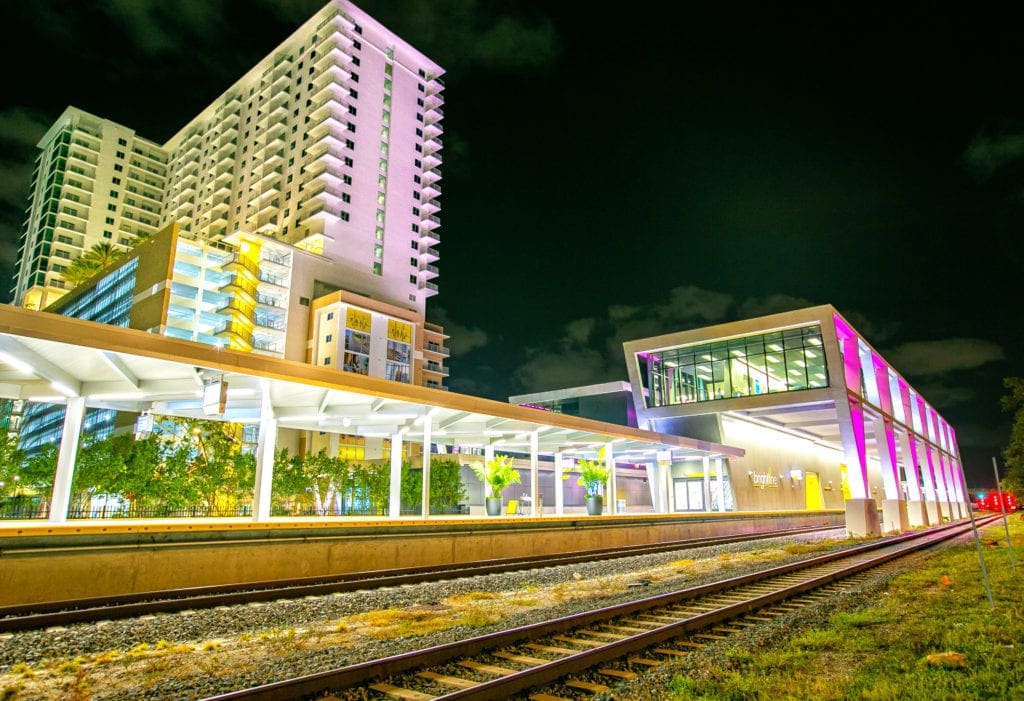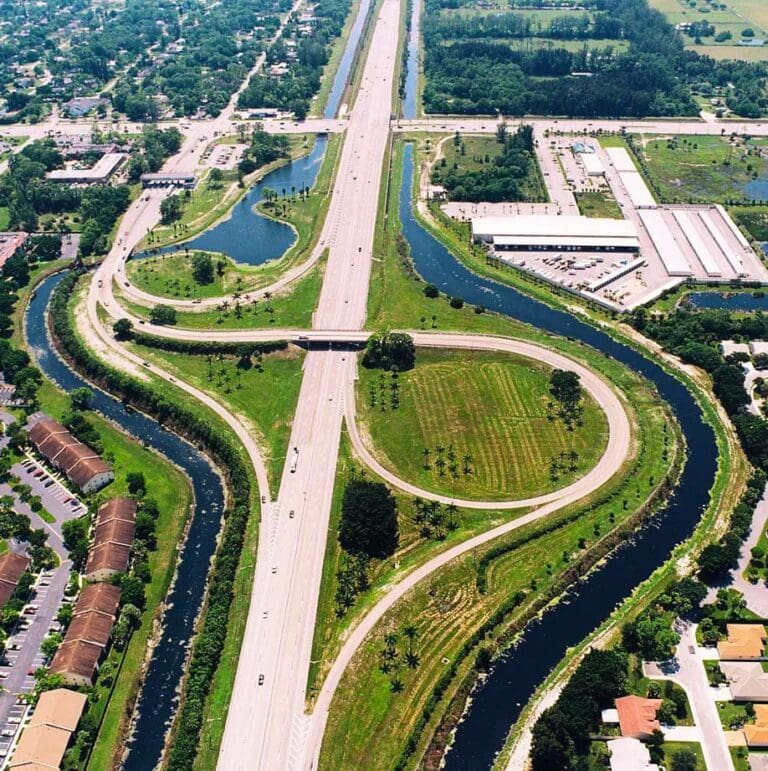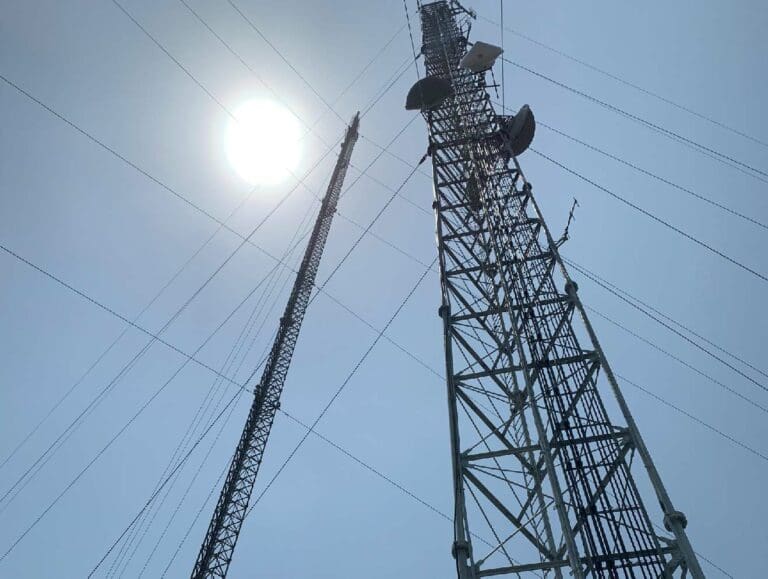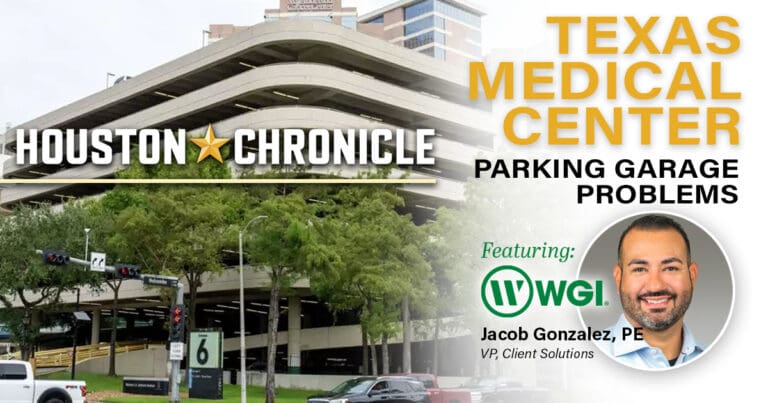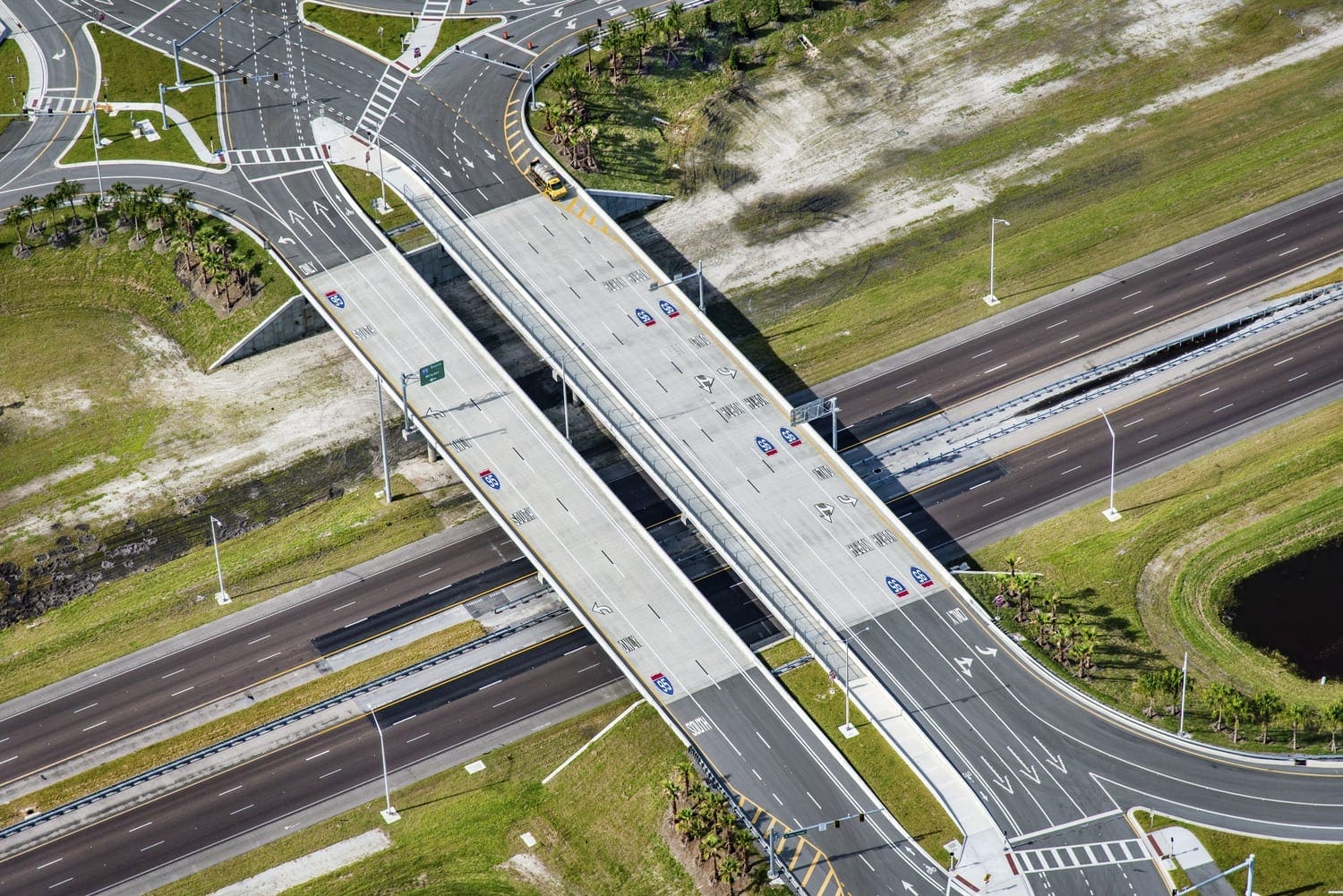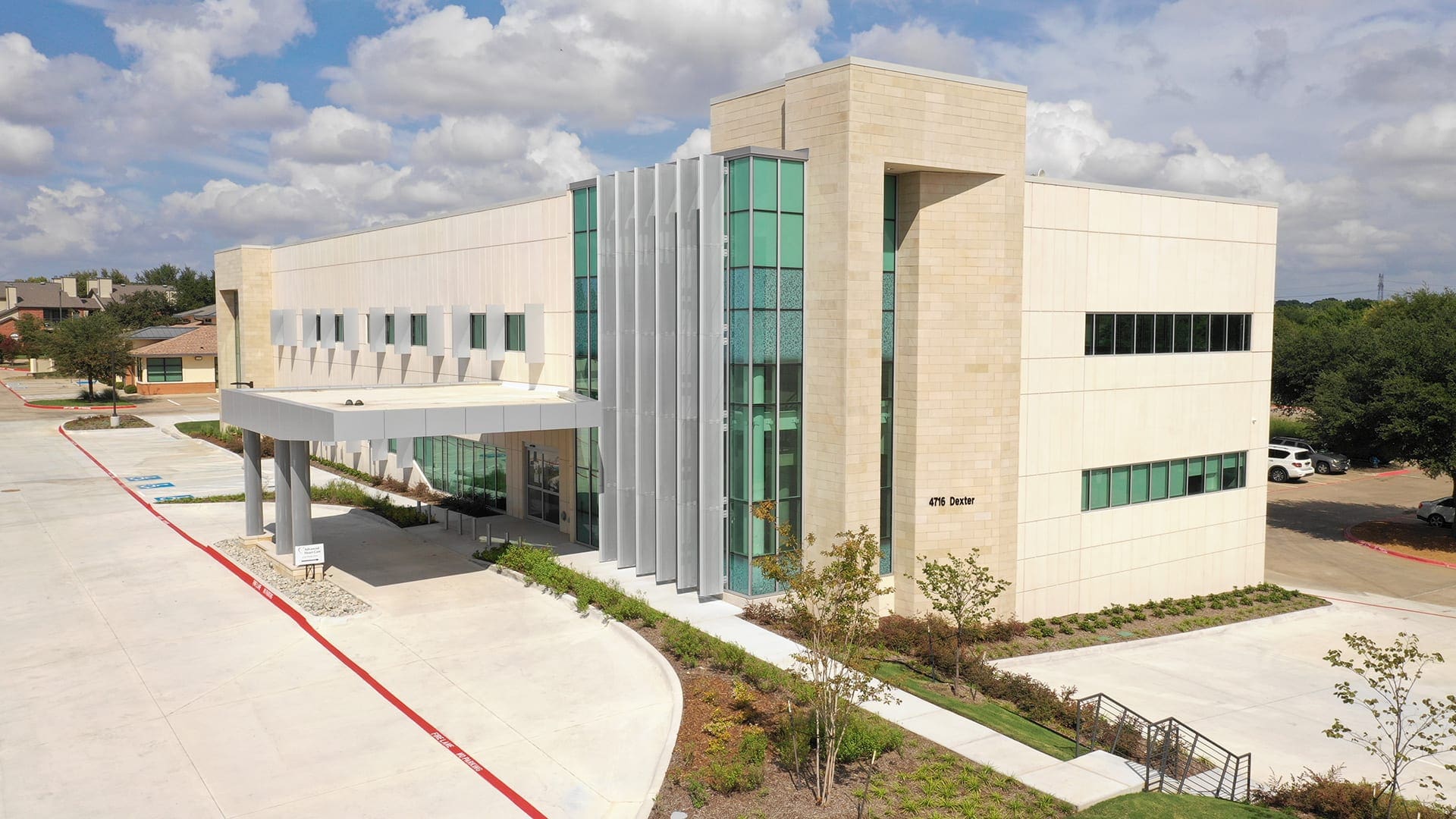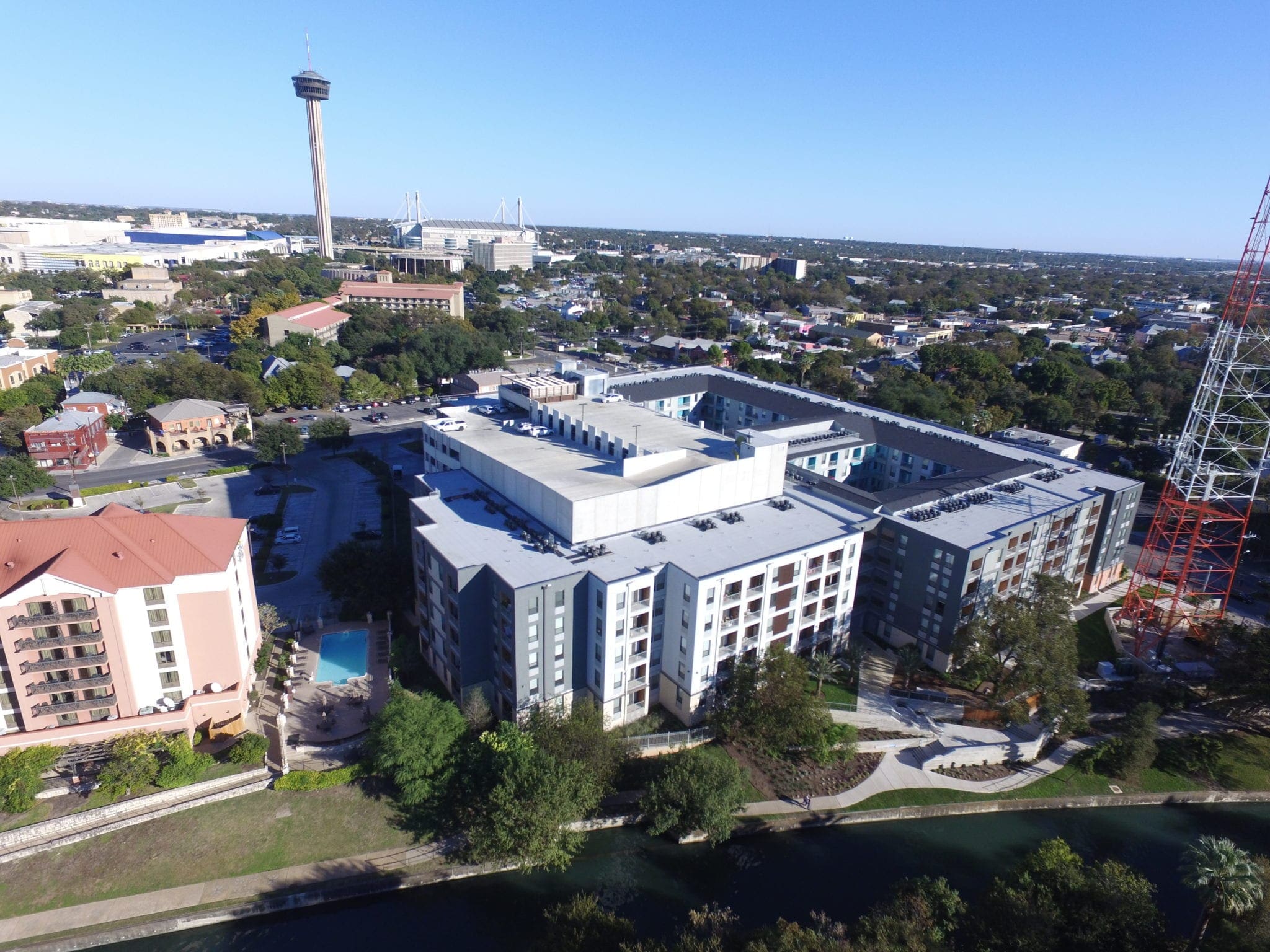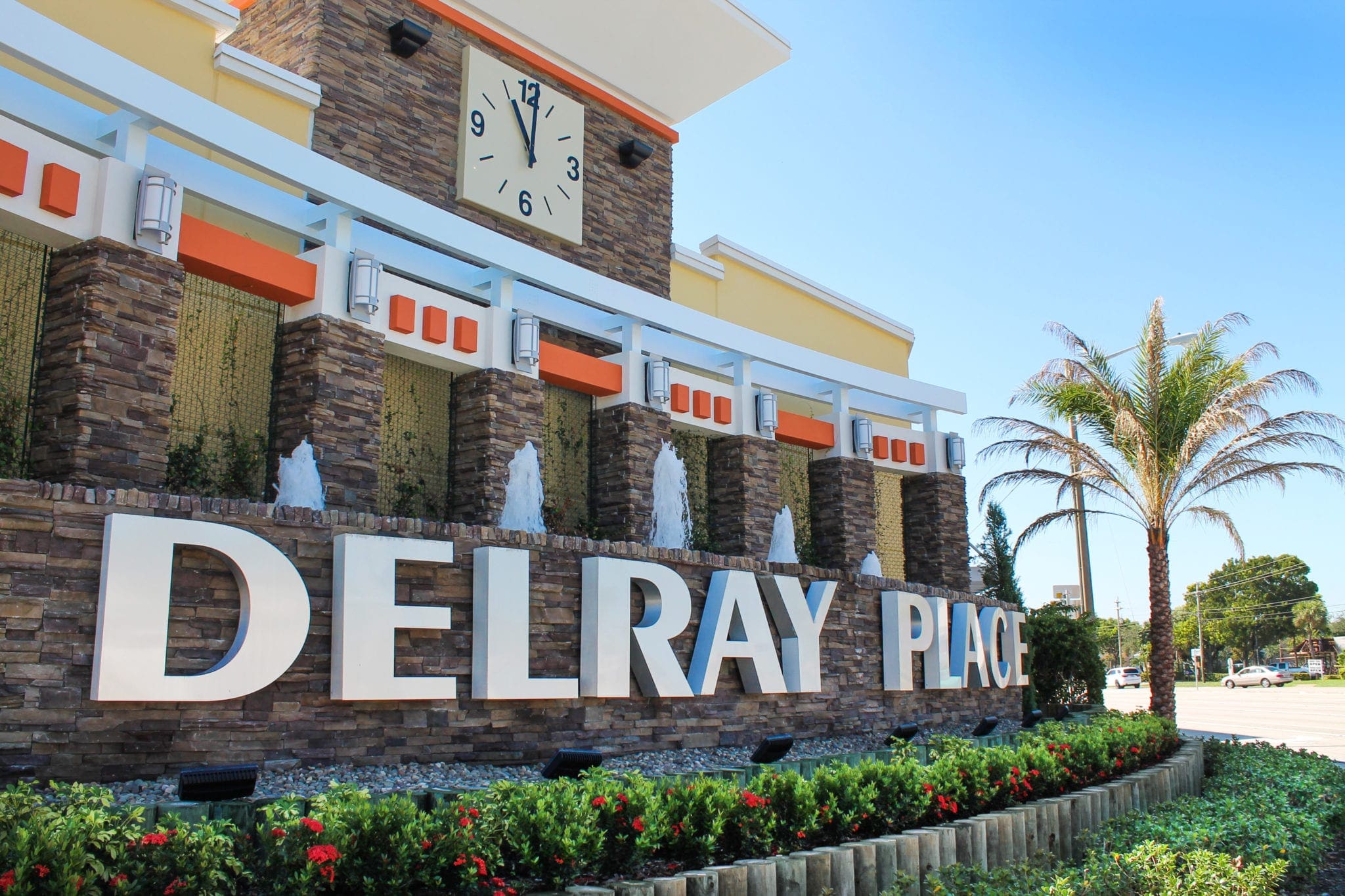WGI is the lead engineer of the Vision 2 Reality Team – a multi-firm partnership with builders, Balfour Beatty, Superior Construction Company Southeast, and Miller Electric – that is currently delivering Phase 1 of JTA’s cutting-edge Ultimate Urban Circulator (U2C), the Bay Street Innovation Corridor, or BSIC. WGI is providing transportation engineering, architectural, environmental, and geospatial services.
One of the first Progressive Design-Build transportation procurements in Florida, this project is a perfect match for the alternative delivery expertise of WGI. The $49M BSIC project is a recipient of a $12.5M USDOT BUILD grant. It will introduce autonomous shuttles to downtown Jacksonville, Florida through three miles of at-grade roadway improvements and smart infrastructure enhancements. It is the first stage of converting the area’s monorail system to autonomous vehicles (AVs) and implementing smart infrastructure, including flood monitoring, AV control and operation systems, intelligent communications systems, connected intersections, and smart pedestrian signals.
As a part of the transit system’s conversion, JTA is converting a rarely-used parking lot to an AV Operations and Maintenance Center with a 7,500-square-foot building designed by WGI’s Buildings Division.
Lisa Nisenson, WGI’s VP of New Mobility and Connected Communities, summarizes: “it reimagines existing infrastructure, incorporates autonomous technologies, and introduces new vehicle types for convenient, sustainable downtown circulators.”
The project is currently under construction, with revenue service slated to begin in 2025.
Notes from the Field: WGI’s Environmental Team Springs to Action
During pre-construction phase testing activities, the project’s geotechnical team detected a strong, fuel-like odor in the soils. WGI’s environmental team quickly responded by developing a Conceptual Site Model (CSM) of the potential source(s) of impact through reviews of historical and regulatory records for the site and adjoining properties.
WGI expedited the site assessment, rapidly defining the petroleum impact at the property boundary to allow cleanup and application of exposure controls during the construction phase. WGI screened and sampled soils and groundwater for the presence of petroleum-related vapors and FDEP-required petroleum compounds.
WGI’s analysis of the histories and assessment data for the site of the west-adjoining properties, including a Brownfield redeveloped residential use, revealed a similar petroleum impact. WGI generated a Site Assessment Report and conferred with members of JTA regarding regulatory protocols as well as the feasibility, sequence, and process of implementing cleanup and applying exposure controls during the construction phase.


